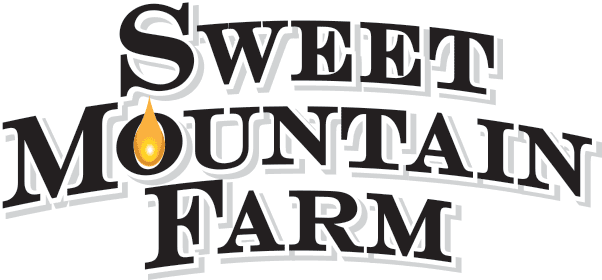Mission Main Street Grant Questionnaire
Five powerful questions and 1,000 characters to answer. Could you do it? Many have asked us about the questions that Chase has asked us and how we responded. First, let me set the stage. It is late afternoon on October 1st and the grandkids will arrive on the bus from school any minute. Quickly checking Facebook for any messages, I glimpse a post from a dear friend that says she has just voted for a small business who is competing for a $150,000 grant. That is how this story began. “A $150,000 grant…am I eligible?” Several hours later, just past midnight, the following questions were answered and submitted.
Tell us about your business and what makes it unique. Please provide a general description of your product, customers, competitive landscape, and overall performance.
Sweet Mountain Farm, LLC (SMF) is more than an apiary, it custom builds northern white cedar beehives, breeds highly sought after Russian honeybees and bottles Washington Island Honey and Maple Syrup.
There are roughly 125,000 beekeepers in the U.S. with 2.5 million colonies. Hobbyist beekeepers represent 82% of the population with Queens being replaced yearly. The U.S. honey market is strong with 410 million pounds required to meet demand yet the U.S. produces 61%. Agriculture is dependent upon honeybee pollination to insure 80% of the foods we eat.
Cedar is an optimal environment for bees yet white cedar is not commercially available, see https://sweetmountainfarm.com/index.php/cedar-beehives. There are only 7 certified Russian Bee breeders in the U.S. In each of the last four seasons, SMF has not been able to meet demand. New customers sign up and wait for availability.
What inspired you to become an entrepreneur? Describe both your greatest achievements and biggest challenges.
I am an entrepreneur. Free market principles were interesting to me in 10th grade when I compared a free market with a closed market. Students In Free Enterprise (SIFE) was an undergraduate group I joined that took 4th place in International competition. The group showcases student led programs that teach entrepreneurship. I had the opportunity, while in Poland, to present a college lecture in free market economics shortly after Poland secured independence. Historically, it was an exciting time. My nature is entrepreneurial, each career move, I envisioned the business as my own and quickly climbed the corporate ladder. The MBA degree was a great achievement. I was one of just two women who graduated with a cohort group of competitive engineers, medical professionals and bankers. The biggest challenge was my husband’s early death. Financially, I had to assess and act quickly. The shock helped me to examine what was important and I chose to run my own business.
How is your business involved with the community you serve? Examples include: giving back to the community, sourcing locally, and/or contributing to economic development via hiring.
Sweet Mountain Farm is an educational resource. We mentor, encourage, motivate and establish new beekeepers frequently lecturing pro bono to bee clubs, associations, and schools. The presentation looks at the history of the Russian Bee, explores its characteristics and helps attendees understand why those characteristics are significant. We learn that research has repeatedly shown that bees managed without chemicals have intense natural selection pressure allowing only healthy colonies to survive. We encourage beekeepers to stop perpetuating bees that can only survive with chemical help. We model a replicable and sustainable small farm apiary. Economic development on an Island in a tourist environment is difficult but it is with businesses like Sweet Mountain Farm that are outside the tourist trade that enables the island population to live on the Island year-round.
What would a $150,000 grant mean to your business and how will you utilize the funds? Please be as specific as possible.
The $150,000 would be used for raw materials and labor to build 460 beehives for customers. Not only would we be able to sell more beehives to begin meeting demand for hardware but we would be able to increase the size of the SMF bee yards to 250 hives and become certified as a Russian Bee Breeder. The customer base for hives will grow from 50 customers per year to 120 customers per year. We will be able to create strategic long-term partnerships with hive customers that will need bees and require yearly queen replacements. Grant funds will be used for promotional marketing brochures, farm stand signage, branding and expenses for one-on-one contact with new customers. This will have significant impact on the community providing jobs during the winter for Island families.
What are your short-term (1-2 years) and long-term growth plans for the business? How will this grant contribute to your plan?
The short-term plan is to build 100 hives in the first year and then increase that number by 20% each additional year. The current business plan calls for 23 hives built for SMF with current stock splits to populate those hives. The hives will produce about 2,000 lbs. of honey. Long-term we would like to become the Midwest’s largest organic honey producer. With this grant we can work immediately to build 200 hives for the Sweet Mountain Farm bee yard and populate those hives with bees. This grant will allow us to become certified and contribute significantly to the Russian Bee Breeding community. The influx of capital will accelerate our growth by 3 years.



